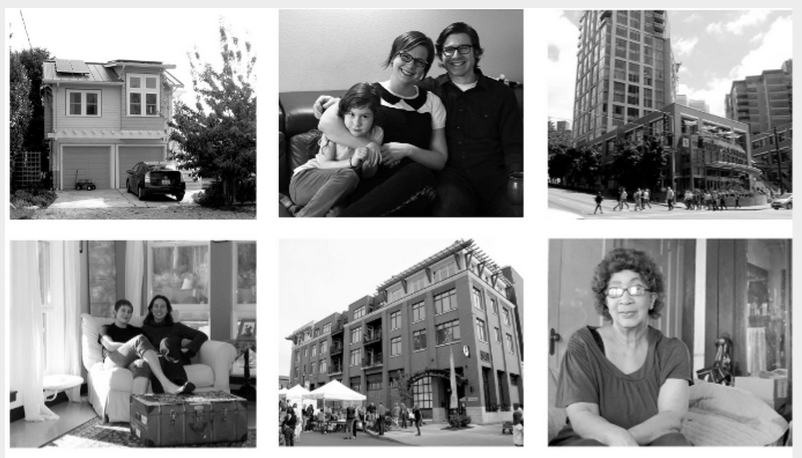Seattleites were deeply shocked last fall when reports surfaced that one landlord in South Seattle had planned to double the cost of rents on tenants who lived in appalling conditions by no fault of their own. Carl Haglund, the absentee slumlord, instantly made headlines when his tenants shared the injustice with local media and City officials. Councilmember Kshama Sawant and former Councilmember Nick Licata wasted no time in seeing the harrowing conditions for themselves and found that Haglund was responsible for extensive health and safety code violations. Facing mounting public pressure, Haglund did make some concessions, including a month of free rent for tenants and a promise to keep rents the same until he could clean up his act.
In response to this kind of inhumanity, Councilmember Sawant and Mayor Ed Murray have joined forces to combat the bad behavior of slumlords. Building upon last year’s enhanced tenant relocation assistance law, the duo are proposing a suite of new regulations that would put in place safeguards for renters who live in unsafe, unhealthy, or substandard housing. The proposed legislation would prohibit any rent increases on a tenant if their unit fails inspection under the City’s tough rental regulations.
The new legislation relies upon tenants to report any violations under the rental laws. As a first step, the tenant would have to provide a written request to delay a rent increase and identify any purported violations to the landlord within 10 days of receiving notice of a rent increase. Before a rent increase could become effective, either the tenant or the landlord could contact the City to request an inspection of the unit. A rental enforcement officer would be assigned to the case and inspect the unit using a weighted checklist to determine if a unit falls in violation of any building, safety, and rental codes. Those codes are quite expansive and include standards like: heating and ventilation, sanitation and contamination, electrical, emergency facilities and devices, and building maintenance.
If a complaint by the tenant were indeed valid, the landlord would not be able to increase rent on the tenant until the violations have been addressed. But in the event that the landlord had already forced the tenant to pay a higher rent, the landlord would have to refund the requisite amount to the tenant or provide a credit to the next rental pay period. The law would also come down harshly on tenants if their appeal to the City was without merit. Tenants would have to fork over the amount of any unpaid rent increase if the increase had been delayed by the landlord, but the purported violations were in fact not violations. So the law would go both ways, but the higher penalties are to the landlord.
The proposed legislation goes much further than just prohibiting landlords for unfair rental increases when in violation of rental laws. It also makes three other adjustments to rental protections and enforcement:
- It would give renters greater civil recourse through the courts in the event that a landlord violates any of the prohibited actions under the rental law;
- Primary responsibility for enforcement against prohibited actions by a landlord would transferred from the Seattle Police Department to the Department of Construction and Inspections;
- It would seek to reduce exorbitant rent increases by landlords by establishing new written notice periods before rent increases could become effective. Specifically, if a tenant were nearing a new periodic contract or were on a month-to-month agreement, the landlord would have to give written notice 60 days before raising rent by 10% or more over the preceding 12 months. Or, if a tenant were nearing a new periodic contract or were on a month-to-month agreement, the landlord would have to give written notice 30 days before raising rent by less than 10% over the preceding 12 months.
Councilmember Sawant and the Mayor both weighed in on the joint proposal. Referring to the Haglund abuses, Sawant said that:
Tenants at 6511 Rainier Ave. S. organized their building into the Tenant’s Union of Washington to stop the abuse of their landlord. They called demonstrations to expose the deplorable conditions, and this legislation shows that tenants can win their rights when they organize and fight back.
The Mayor added to the discourse on the proposal that:
The practice of raising rents on substandard homes is unacceptable and we must take steps to protect vulnerable renters from displacement and unsafe living conditions. This is a race and social justice issue that disproportionality impacts communities of color. We’ve seen landlords let homes fall into disrepair or raise rents to displace and redevelop the property. If Seattle is to become more equitable, we must ensure that rental housing is safe and remains affordable for residents.
And significantly, this package of renter protections comes on the heels of other rental protections that the Mayor is proposing, specifically legislation that would end discrimination of non-wage income sources by landlords and a review of preferential rental schemes with local employers and their employees. All of these legislative and executive actions are ultimately part of the Mayor’s larger Housing Affordability and Livability Agenda program for 2016. The Mayor’s Office believes that the Council will take on review of the legislation later this spring.
Stephen is a professional urban planner in Puget Sound with a passion for sustainable, livable, and diverse cities. He is especially interested in how policies, regulations, and programs can promote positive outcomes for communities. With stints in great cities like Bellingham and Cork, Stephen currently lives in Seattle. He primarily covers land use and transportation issues and has been with The Urbanist since 2014.


